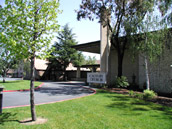The Development of Ethics
Ethical philosophers have derived a number of ways of approaching ethics. The word ethics comes from the Greek (θικός) meaning “the theory of living” [1] or “a system of value and custom instantiated in the lives of particular groups” [2] that articulates the morality of the group or organization. Therefore, in many ways, it goes beyond the individual to the group or organization to which the individual belongs. It does not dismiss individual ethics, but incorporates individuals within an ethical framework of a group setting.
The Beginnings
Ethics has a long history, dating back to the first ethical transaction in the Garden that spread before the City of God – the Garden of Eden. This was an ethics based on faith. This faith recognized that God knew better concerning how men and women should live than they did. A breach of ethics claimed its first victims who came under judgment and received the sentences of expulsion from the protection of the City of God and the pronouncement of death. Although the Judge of the earth delayed the sentence of physical death, the first man and woman received an instant judgment of spiritual death, which passed to their offspring through all generations.
From that point forward, the citizens of the City of Men struggled to develop means of living with his fellow men under the judgment of God. The priests and thinkers of their generations imposed their own codes of ethics on the peoples in various forms of government so that civilization could develop. However, as people began to multiply over the earth so also did their unrestrained evil. Their separation from God proved overbearing, leading to continual violence, lusts of all sorts, and darkness of heart (Genesis 6:5). God decided that the City of Men needed cleansing and did so with a great flood (6:7). However, moral bankruptcy remained in the offspring of Noah although God showed favor to him by sparing him from His cleansing.
The Dawn of Societal Ethics
One of the first cities came into existence. The citizens of this city said to one another, “Let’s combine our resources and do business together. Let’s form a corporation, give it our name, and enter into a large construction project to laud our efforts. In addition to numerous building projects, let’s construct a large building that reaches to the heavens and proclaim ourselves to be masters of the universe stopped by nothing.” Therefore, the people of the City of Men became united economically, governmentally, and in their language (Genesis 11:1-9).
However, God had a different agenda. The City of Men was not to His liking, for it ignored His moral authority, and they failed to comply with His code of ethics. Consequently, He confused their language so that they divided into numerous dialects and unity became division. Their corporate communications mechanisms failed, and they eventually dissolved without completing their building projects.
As time marched forward, the Babylonian Empire saw another great ruler, Hammurabi (circa 2342 B.C.-2010 B.C.), who established his kingdom and left a witness to the earliest written ethical expression of the times. His name means “the kinsman is a healer.” [3] He left a legacy to his code of ethics on an “obelisk-like block of black diorite measuring 7’ 41/2’’ in height and 6’ 9” in circumference at the base.” [4] This large stone provided the laws of his dominion covering both legal and criminal code along with an inscription to his honor that read, “When Marduk sent me to govern men, to sustain and instruct the world, right and justice in the land I established, and brought about the happiness of men.” [5] His code encompassed matters concerning bans and witchcraft, false witnesses, theft, kidnapping, burglary, landowner and tenant, damages to crops, shepherding, and the care of orchards. [6]
As generations passed, another man arose from Egypt, whom the Pharaoh trained in the arts, language, religion, and government affairs. He arose from a small basket in the Nile to become among the greatest in Pharaoh’s government. Several political miscues cost Moses his position beside Pharaoh and he escaped death and lived in the desert for forty years. However, God lifted him up once again to become the leader of Israel’s exodus from Egypt. God gave Moses His code of ethics embedded on tablets of law (The Ten Commandments). Torah became a legacy of his encounter with God on ethical behavior in civil, religious, and criminal affairs. It guided the society of the children of Israel in the land they inherited. In living by YAHWEH’s code of ethics, they would prosper, but departure would bring them all the curses the Law degreed. Their personal lives and their way of conducting business fell under the same law.
As judges and kings arose in Israel, they ruled over the people according to the Law of Moses. However, not all of them fell in line with that Law. Saul departed from following God and fell on the battlefield because of his unethical behavior before the nation. King David produced offspring within a tumultuous and dysfunctional family. However, from that family surfaced one who came before God and sought His wisdom as first priority. This king, Solomon, produced one of the greatest books of ethics in history – Proverbs. Later Solomon departed from God and his own wisdom, falling into the folly of sexual promiscuity and sunk into the clutches of idolatry. However, the book Solomon left was a book of ethics for both individual and society.
[1] ______________, Ethics in Wikipedia: The Free Encyclopedia, http://en.wikipedia.org/wiki/Ethics.
[2] Crisp, Roger (1998). Ethics. In E. Craig (Ed.), Routledge Encyclopedia of Philosophy. London: Routledge. Retrieved July 07, 2006, from http://www.rep.routledge.com/article/L132.
[3] _______________, Hammurabi in Wikipedia, The Free Encyclopedia, http://en.wikipedia.org/wiki/ Hammurabi
[4] Souvey, Charles L., Hammurabi in The Catholic Encyclopedia, Volume VI, Online Edition (New York: Robert Appleton Company, 2003.
[5] Ibid.
[6] Ibid.

